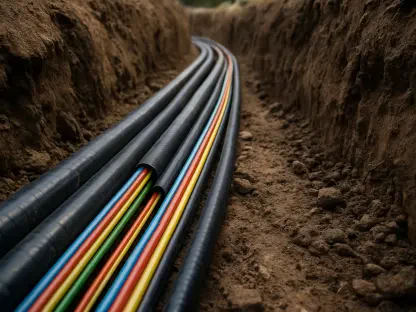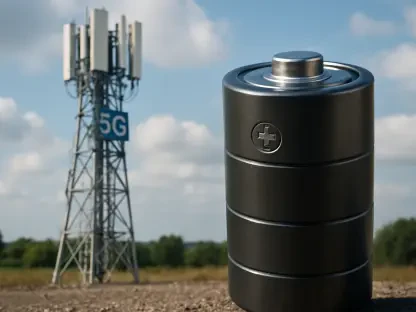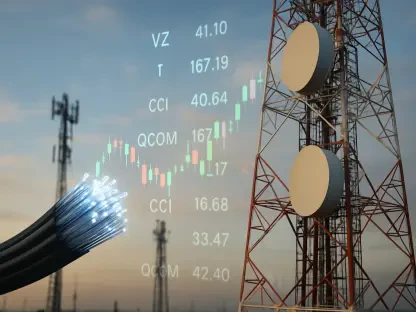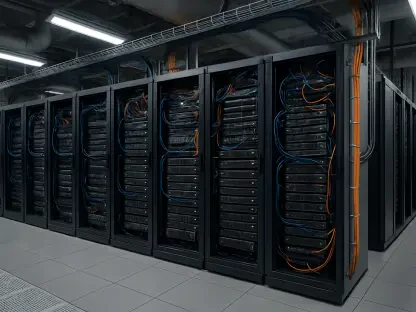Setting the Stage: The IoT Revolution and Telenor’s Bold Vision
The Internet of Things (IoT) market is exploding, with billions of devices connecting industries, homes, and cities in ways previously unimaginable, creating a projected market value exceeding $1 trillion by the end of this decade. Amid this technological tidal wave, Telenor, a Norwegian telecommunications giant, has emerged with a daring goal: to rank among the top five global IoT providers, excluding China. Managing over 25 million connected devices and generating substantial revenue, Telenor is positioning itself as a formidable contender. This analysis dives into the company’s strategic maneuvers, evaluates market trends shaping the IoT landscape, and assesses whether Telenor has the infrastructure and foresight to dominate on a global scale. The stakes are high, as success in this arena could redefine telecom leadership for decades to come.
Diving Deep: Market Trends and Telenor’s Strategic Play
IoT Growth Trajectory: A Booming Opportunity
The IoT sector is witnessing unprecedented expansion, driven by the proliferation of 5G networks and rising demand for smart solutions across diverse fields like healthcare, transportation, and urban planning. Industry projections suggest that the number of connected devices worldwide could double within the next five years, creating vast opportunities for telecom operators. Telenor, with its established Nordic stronghold, is capitalizing on this momentum by consolidating operations under a unified platform, enhancing its ability to serve a growing client base. This strategic alignment not only boosts efficiency but also positions the company to tap into emerging needs for real-time data and connectivity solutions.
Telenor’s Competitive Edge: Strengths in a Crowded Field
In a market teeming with heavyweights like Vodafone and AT&T, Telenor stands out through its agility and regional focus. By establishing new legal entities in key Nordic markets such as Finland and Norway, the company aims to deepen customer trust and support—a critical factor in IoT where reliability is paramount. Furthermore, with reported revenues of approximately $169 million from IoT operations in recent figures, Telenor demonstrates the financial muscle to invest in innovation. However, scaling beyond regional dominance requires navigating intense rivalry and the high costs associated with global expansion, a challenge that tests even the most seasoned players.
Technological Catalysts: 5G and AI as Game Changers
Advancements in 5G technology are set to revolutionize IoT by enabling faster, more reliable connections, unlocking applications in autonomous systems and smart infrastructure. Artificial Intelligence (AI) also plays a pivotal role, offering tools for optimizing device management and predictive maintenance, areas where Telenor could gain a competitive advantage through targeted investments. Industry insights highlight that companies integrating these technologies early stand to capture significant market share. For Telenor, leveraging such innovations could mean the difference between being a regional leader and a global frontrunner, provided it can manage the associated cybersecurity risks.
Global Challenges: Navigating a Complex Landscape
Regulatory Hurdles and Market Disparities
Operating across diverse regions brings a mix of opportunities and obstacles for Telenor. In Europe, stringent regulatory frameworks around data privacy and industry consolidation could slow expansion if policies remain restrictive, mirroring broader telecom sector frustrations over merger limitations. Conversely, emerging markets in regions like Africa present untapped potential, especially as satellite connectivity initiatives bridge digital gaps. Tailoring low-cost, scalable IoT solutions for such areas could provide Telenor with a unique foothold, though navigating local regulations and infrastructure limitations remains a critical hurdle.
Sustainability and Consumer Trust: Emerging Priorities
As IoT reshapes industries, sustainability has become a pressing concern, with consumers and regulators favoring energy-efficient solutions. Telenor has the opportunity to differentiate itself by prioritizing green technologies in its IoT deployments, aligning with global environmental goals. Additionally, addressing misconceptions around data privacy through transparent communication is essential to build trust among users. Balancing these priorities while maintaining profitability is no small feat, yet it could cement Telenor’s reputation as a responsible and forward-thinking leader in the space.
Reflecting on the Path Forward: Strategic Insights for Telenor
Looking back, this analysis reveals that Telenor’s journey toward IoT leadership is marked by strategic consolidation and a keen focus on regional strengths, though it faces significant challenges from global competition and regulatory complexities. The integration of cutting-edge technologies like 5G and AI emerges as a potential differentiator, while sustainability and trust-building measures stand out as critical for long-term success. Moving forward, Telenor would benefit from forging strategic partnerships to accelerate global scaling, investing in niche sectors like smart agriculture for unique market positioning, and doubling down on cybersecurity to protect its expansive device network. These steps, if prioritized, could transform hurdles into stepping stones, offering a blueprint for other telecom giants eyeing IoT dominance in a connected era.









